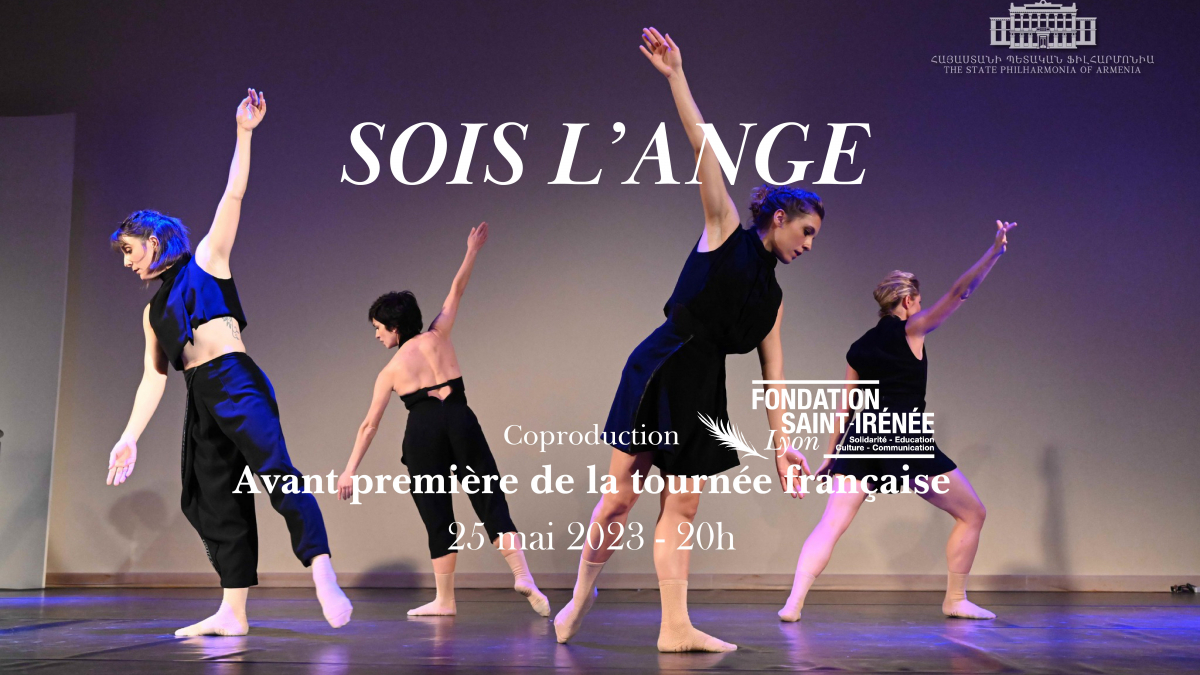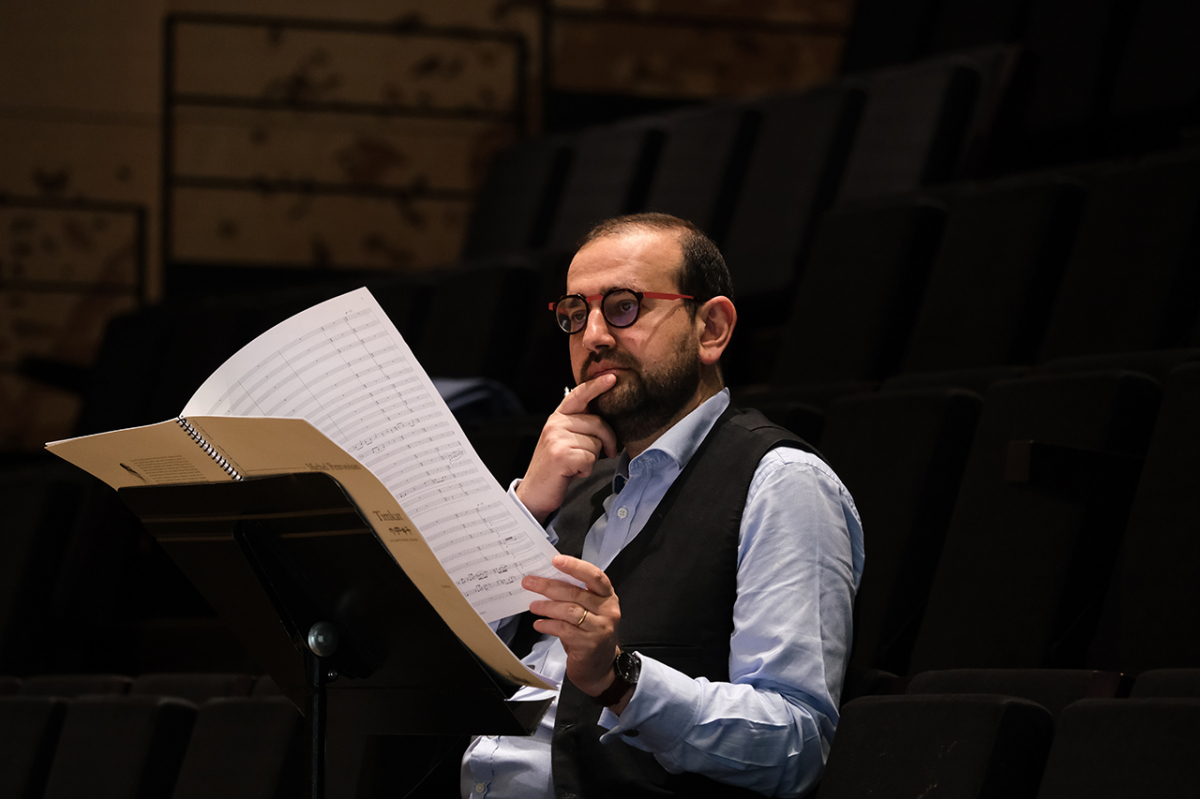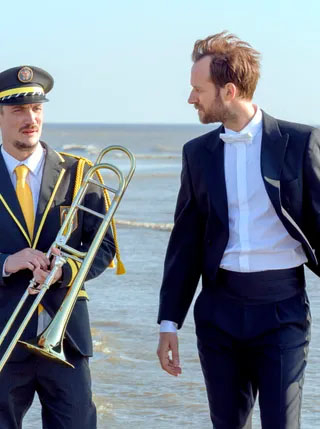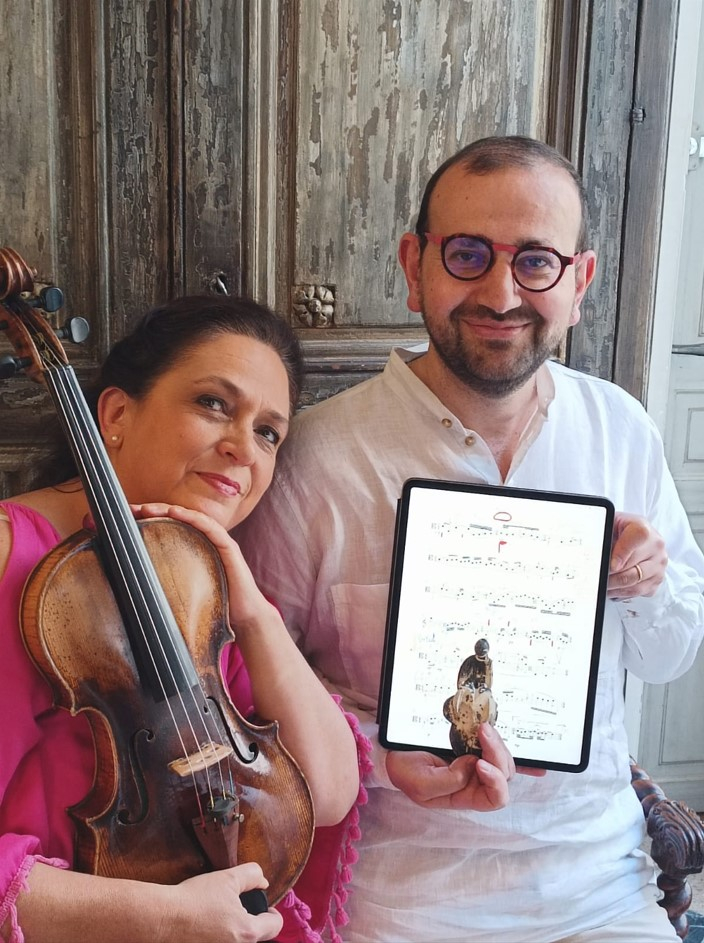Friday 24 May 2024
Show "Sois l'Ange" in Lyon
"Sois l’Ange" is an original creation that offers a dialogue between literature, poetry, music, and contemporary dance. The piece is infused with demanding musical and choreographic writing, delivered by virtuoso performers. Group dances, solo dances, and musical pieces are woven around the texts to lead us, along with all the artists, to the final tutti. The work challenges us on our humanity, confronts us with our choices: to be devil or to be angel.
Address: Aux Échappées Belles, 65 Rue du Bourbonnais - 69009 Lyon 9th
Opening: Saturday, May 25, 2024, at 8 p.m.
Music: Contemporary Orchestral Ensemble
Violin: Gael Rassaert
Violin: Céline Lagoutière
Viola: Aurélie Métivier
Cello: Nicolas Cerveau
Flute: Fabrice Jünger
Dance: Hallet Eghayan Company and Associated Artists
Margot Bain, Émilie Eckly, Anne-Sophie Seguin, Nicola Ayoub
More information: https://yp.events/a1e1f1cf-57ac-4b67-b9eb-7fb38bc11020/Sois-l-ange
Thursday 23 May 2024
Creation of Timkat for the Ensemble Intercontemporain
Timkat, for ensemble of thirty musicians
Composition : 2024
Commissioned by the Maison de la Musique Contemporaine for the SuperPhoniques for the Ensemble intercontemporain
Publisher: Éditions Musicales Artchipel
Duration: 13 minutes
Photos d'Ethiopie (copyright Frédérique Brulé)
Photos de la répétition avec l'Ensemble Intercontemporain à la Philharmonie, direction : Léo Margue
"Timkat" is inspired by a series of four trips Michel Petrossian made to Ethiopia. From 2016 to 2019, the composer visited major cultural sites, took part in ancestral festivals and met a number of musicians, traditional street performers and professional singers known as däbtärä. He returned from his travels with some twenty short videos, which he used as a narrative framework "to imagine a fresco imbued with the complex sound phenomena observed at the time", he explains. In Bahar Dar, on the shores of Lake Tana, the Timkat festival (honoring the baptism of Christ and celebrated throughout Ethiopia) was like the culmination of his journey.
The richness of this festival, at its most intense, captured the composer's attention: "All the processions, each with its own sound and visual identity, starting from the four corners of the town, converge on the single gathering place - an immense basin filled with water which is poured over all the participants, in a cathartic movement featuring scenes of great popular jubilation and trance-like phenomena".
This celebration, which combines the survival of tribal rites and Christian ceremonies around water as a symbol of life, is a prodigious source of inspiration for the composer, who is enthusiastic about the association between modernity and ancestral traditions: "Confronting two universes that seem to be on opposite ends of the spectrum [...] is to create a collision, the promise of a cognitive dissonance that arouses my desire as a composer".
However, Michel Petrossian's approach is more a questioning of identity than a superficial search for picturesque effects: "It's by no means a simple quest for exoticism, sound illustration or folkloric effects of any kind. Rather, it's a starting point that brings two states of the world into simultaneous presence, in the hope of producing a new meaning, a different sound universe".
Michel Petrossian
Sunday 19 May 2024
Presentation of the film "The Matching Band" at Cannes
"The Matching Band" by Emmanuel Courcol, Official Selection Cannes Film Festival, Cannes Première
Original title: En Fanfare
Featuring Benjamin Lavernhe, from the Comédie Française
Pierre Lottin Sarah Suco Production: Agat Film, Marc Bordure Original
Music: Michel Petrossian
Official screening at Cannes: May 19th at 7 p.m.
Saturday 18 May 2024
Creation of the Vénus de Lespugue
"Venus de Lespugue" for solo viola.
Commissioned by the Calliopée Ensemble.
World Premiere: Karine Lethiec.
Published by Artchipel Music Editions.
May 18, 2024, at 9 p.m. at the Musée de l'Homme, as part of the Night of Museums.
"Venus de Lespugue" is inspired by the eponymous 15-centimetre mammoth bone statuette, found in 1922 in a cave in the Haute-Garonne region of France and dating back 29,000 years. It's one of the most fascinating objects of prehistoric times, and the emblem of the Musée de l'Homme, where it's on display.
The ambiguity of its multiple figure is superimposed on its obvious beauty, with multiple angles of view offering several interpretations: a single woman or two, one giving birth to the other, or a female figurine and phallic attribute, to evoke the completeness of fertility. However you read it, it seems to have a ritual function associated with it, celebrating life in its recommencement and continuity.
I wanted to be as close to the object of my inspiration as possible - so that I could fly as far as it carried me. I oscillated between metaphysical quest and aesthetic wonder, the transposition of sculptural proportions into music and very direct naturalism.
The work begins with a movement that recalls the story of its discovery.
The noisy rubbing of the bow on the diagonal evokes the rubbing of the ground during the excavations, and the percussive sound produced simultaneously by the left hand recalls the pickaxe blows that uncovered this Venus while disfiguring it (nine in number, referring to the nine dislocated pieces of the statuette during the discovery).
To attempt a poetic deciphering, I appropriated the viola's idiom, aiming to create a work-world that declines the instrument in all its avatars, but guided by what appears to me to be its very essence - inner song.
This song is made up of pure sounds or complex noises, fragments of melody or strident rhythms. Obsessed by the figure of the circle that commands all the object's structural proportions, I use the instrument's strings or wood - notably in bariolages that incorporate not only the strings, but also the ribs, as if to evoke the hypertrophied feminine attributes of this Venus that are partly missing.
A play of disjointed harmonic tones is a possible echo of the primitive flutes that were played in her time - they take us out of the limiting artifice of equal temperament.
An archaic chant that is at the same time a dance structures the second part of the work, and demands particular agility from the violist, through the accumulative effect of the multiplication of voices - a tribute to the plurality of readings, before the elements already heard return, in a more concentrated and elliptical form.
My "Venus de Lespugue" is above all a tribute to the extraordinary longevity of the object and the permanence of its beauty through the centuries. Permuting the functions of time and space, I wanted to verticalize this vertiginous duration and respond in echo to the silence of millennia, for if Venus de Lespugue was contemporary with all the events of history that we know, she lived double the periods of which we know nothing.
Wednesday 14 June 2023
Five stars in Classical Music (BBC Music Magazine) for the CD "Armenian Cello Concertos"
Five stars in Classical Music (BBC Music Magazine) and reviewed by Michael Church, one of the leading British music critics (The Times, The Independent, The Telegraph, The Guardian).
https://www.classical-music.com/reviews/concerto/armenian-cello-concertos/



















